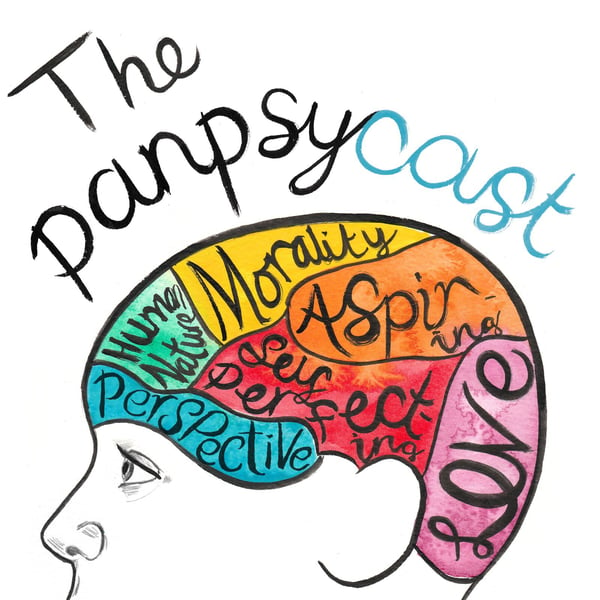Episode 142, 'The Philosophy of Food' with Julian Baggini (Part II - Further Analysis and Discussion)
The Panpsycast Philosophy Podcast
Jack Symes | Andrew Horton, Oliver Marley, and Rose de Castellane
4.8 • 604 Ratings
🗓️ 4 May 2025
⏱️ 33 minutes
🧾️ Download transcript
Summary
Food is one of the most universal and essential parts of human life. From gourmet steaks to the everyday, humble, packet of crisps, food consumption is everywhere. But what do we actually know about how our food is grown? How is it processed? And how does it ends up on our supermarket shelves or in our restaurants and takeaways? While we may look back and think traditional food customs are more often in harmony with the natural environment, most of us today rely on a complex global food web of production, distribution, consumption and disposal. But how does it work, and what can philosophy say about food?
Joining our discussion on food philosophy today is philosopher Julian Baggini. Baggini is an expert in popular philosophy with Sunday Times best-selling books such as How the World Thinks, How to Think Like a Philosopher and The Pig That Wants to be Eaten. He has served as the academic director of the Royal Institute of philosophy and is a member of the Food Ethics Council. He has written for The Guardian, the Times Literary Supplement, the Financial Times, and Prospect Magazine, as well as a plethora of academic journals and think tanks.
In his wide-ranging and definitive new book, How the World Eats, Baggini argues that the need for a better understanding of how we feed ourselves has never been more urgent. Baggini delves into the best and worst food practises around the world in a huge array of different societies, past and present-exploring cutting edge technologies, the ethics and health of ultra processed food and the effectiveness of our food governance. His goal: to extract a food philosophy of essential principles, on which to build a food system fit for the 21st century and beyond. What is that food philosophy? Let's tuck in, and find out.
Links
Julian Baggini, How the World Eats: A Global Food Philosophy
Transcript
Click on a timestamp to play from that location
| 0:00.0 | Pan Pan Pan Pan Pan Pan Pan Pan Pan Pan Pan Pan Pan Pan Pan Pan Pan |
| 0:05.2 | Scicast |
| 0:07.9 | Part 2, further analyses and discussion. |
| 0:25.0 | So in the previous installment, we discussed the ethics, production and future of the food industry with the brilliant Julian Begini. |
| 0:30.3 | We focused the discussion on several key principles that Julian thinks to make sure that the food industry endears to make it much, much better. |
| 0:54.8 | The plurality, resourcefulness, compassion, equitability, go back and listen to it if you haven't listened to it yet. So going straight into a critique here, Julian, I've heard you say that it's very hard to disagree with these principles. To use your own words in the book, you say they could be considered a bit too woolly and too thin. And critics of philosophy often say that it's okay to sit in your armchair and theorise about lofty values and principles, |
| 0:59.7 | but they don't make really a difference. The global food system is really bad, as you say, |
| 1:04.4 | but protests, pressure groups, changing consumer habits, boycotts, are these more effective |
| 1:09.1 | than lofty principles? Yes, but in a sense, yes, |
| 1:14.4 | but the point is unless they're based on the right principles, they're not going down the right |
| 1:17.2 | results. So that's part of the work. There's a division of labour, and I think one shouldn't belittle |
| 1:22.1 | the importance of getting really clear about the way things should be before you start demanding |
| 1:26.7 | the way they should be, |
| 1:28.3 | right? So that's important. The second point is, as you say, they are quite general, it's hard |
| 1:32.6 | to disagree with them. Does that mean they're not worth they're just too thin? But I think actually |
| 1:36.8 | it turns out in this context, it's the opposite. Imagine if you have a principle which everyone |
| 1:41.6 | agrees is the right principle and everyone can see that |
| 1:45.8 | that principle is not being followed, then in theory you should then have like everything |
| 1:50.3 | set up beautifully to bring about the change. |
| 1:52.5 | If these principles were more controversial, it'd be harder to get people behind them |
| 1:55.7 | to bring about the change. |
| 1:57.1 | So I think the fact that they are almost self-evidently good and equally self-evidently not being followed is what gives them the power that they might have. |
... |
Please login to see the full transcript.
Disclaimer: The podcast and artwork embedded on this page are from Jack Symes | Andrew Horton, Oliver Marley, and Rose de Castellane, and are the property of its owner and not affiliated with or endorsed by Tapesearch.
Generated transcripts are the property of Jack Symes | Andrew Horton, Oliver Marley, and Rose de Castellane and are distributed freely under the Fair Use doctrine. Transcripts generated by Tapesearch are not guaranteed to be accurate.
Copyright © Tapesearch 2025.

